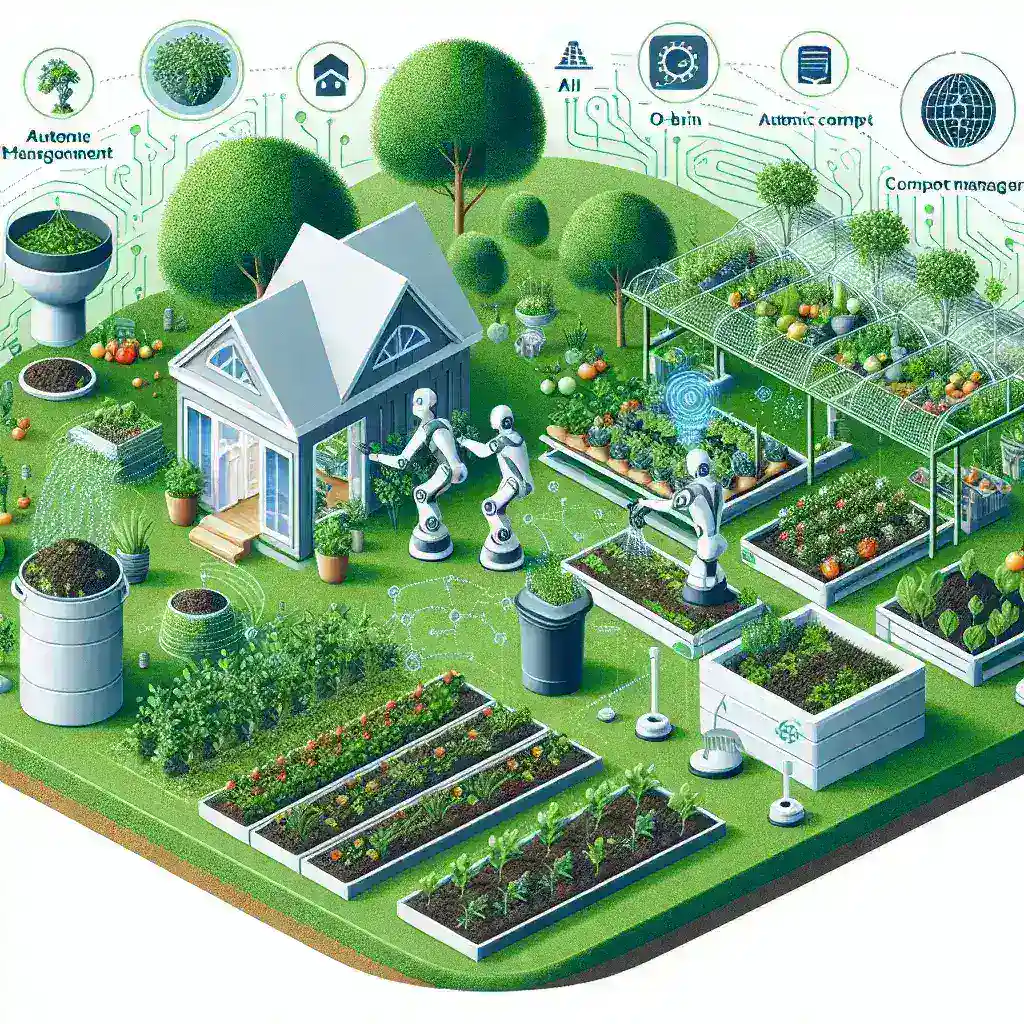Introduction to Automated Eco-Spaces
As the world shifts towards a more sustainable and eco-friendly lifestyle, innovative technologies are emerging to support this movement. One such innovation is the concept of automated eco-spaces, which leverages artificial intelligence (AI) to manage and optimize home gardens and compost systems. In this article, we will delve into the world of automated eco-spaces, exploring their benefits, features, and potential to revolutionize the way we live.
What are Automated Eco-Spaces?
Automated eco-spaces refer to the integration of AI-powered systems with traditional home gardens and composting methods. These systems utilize sensors, machine learning algorithms, and automation technologies to monitor, control, and optimize various aspects of garden and compost management. By doing so, automated eco-spaces aim to reduce waste, increase efficiency, and promote sustainable living.
Benefits of Automated Eco-Spaces
- Increased Efficiency: Automated eco-spaces can monitor and control temperature, humidity, and light levels, ensuring optimal conditions for plant growth and composting.
- Reduced Waste: AI-powered systems can detect and prevent overwatering, reducing water waste and minimizing the environmental impact of gardening and composting.
- Improved Crop Yields: By providing optimal growing conditions, automated eco-spaces can increase crop yields, reducing the need for external food sources and promoting self-sufficiency.
- Enhanced Composting: Automated composting systems can optimize the decomposition process, reducing odors, pests, and contaminants, and producing high-quality compost for garden use.
Features of Automated Eco-Spaces
Automated eco-spaces typically include a range of features, such as:
- Sensors and Monitoring Systems: Temperature, humidity, light, and moisture sensors monitor conditions in real-time, providing valuable insights for optimization.
- Machine Learning Algorithms: Advanced algorithms analyze data from sensors, adjusting conditions and making predictions to ensure optimal performance.
- Automation and Control Systems: Automated systems control irrigation, pruning, and other tasks, minimizing manual labor and ensuring consistency.
- Data Analytics and Visualization: User-friendly interfaces provide insights into system performance, offering data-driven recommendations for improvement.
Applications of Automated Eco-Spaces
Automated eco-spaces have a wide range of applications, including:
- Residential Gardens: Homeowners can optimize their gardens, reducing water and energy consumption while increasing crop yields.
- Commercial Farms: Large-scale farms can benefit from automated eco-spaces, improving efficiency, reducing waste, and increasing profitability.
- Community Gardens: Shared gardening spaces can utilize automated eco-spaces to promote sustainability, education, and community engagement.
Challenges and Limitations
While automated eco-spaces offer numerous benefits, there are also challenges and limitations to consider:
- Initial Investment: The cost of implementing automated eco-spaces can be prohibitively expensive for some individuals or organizations.
- Technical Complexity: The integration of AI, sensors, and automation technologies can be complex, requiring specialized expertise.
- Data Security and Privacy: The collection and storage of data from automated eco-spaces raise concerns about security and privacy.
Conclusion
Automated eco-spaces represent a significant step forward in the pursuit of sustainable living. By leveraging AI and automation technologies, individuals and organizations can optimize their gardens and composting systems, reducing waste and promoting eco-friendly practices. While challenges and limitations exist, the potential benefits of automated eco-spaces make them an exciting and worthwhile investment for those committed to a greener future.

